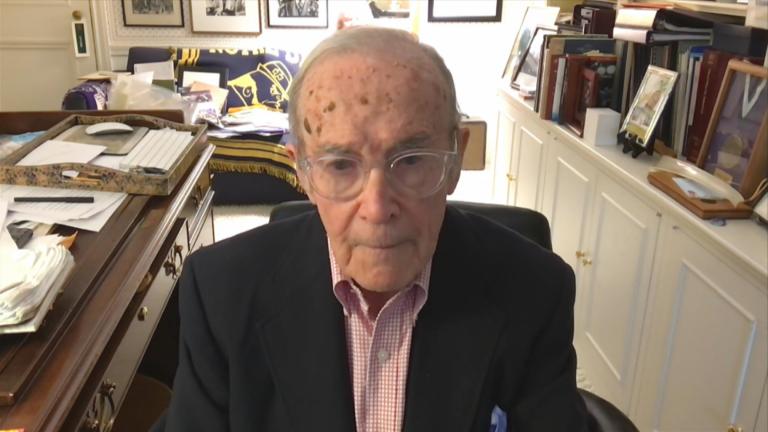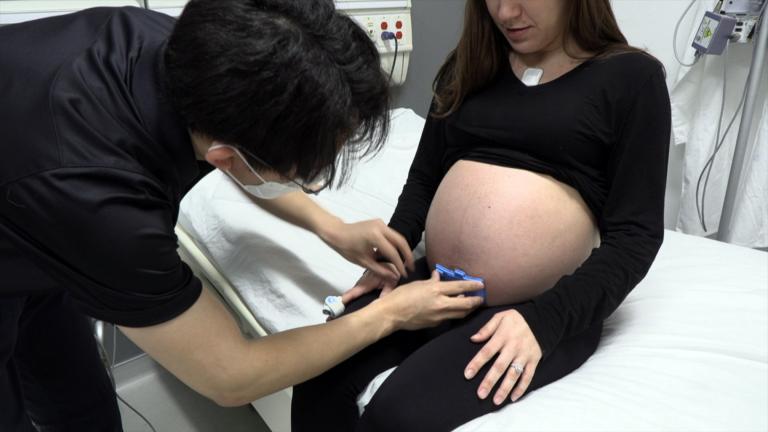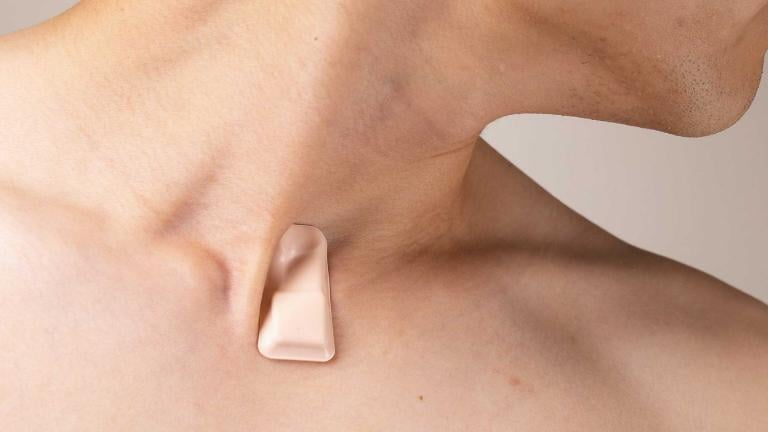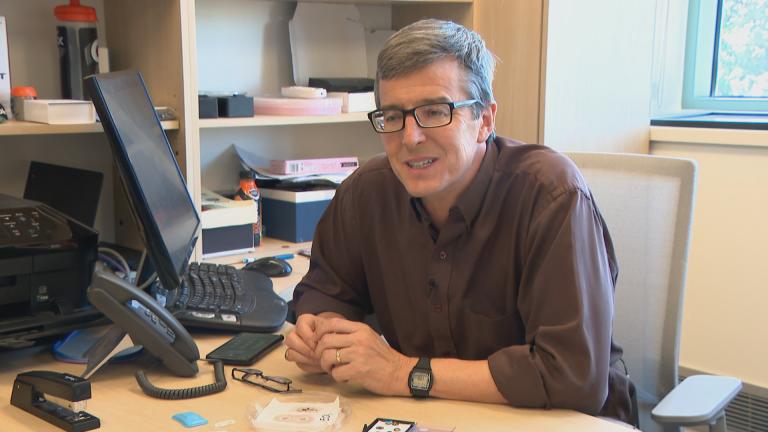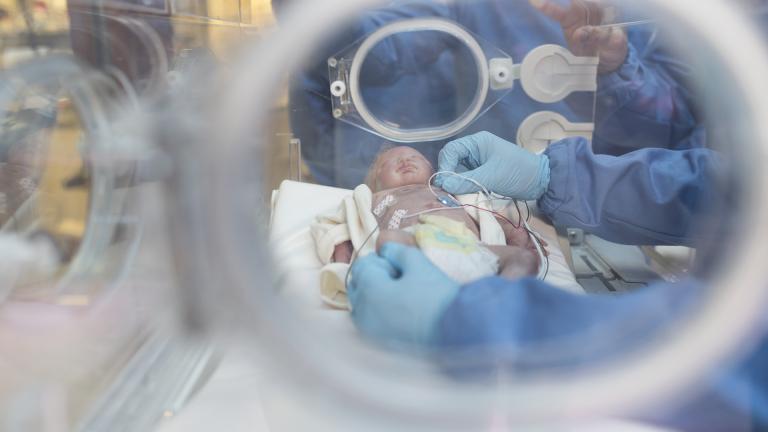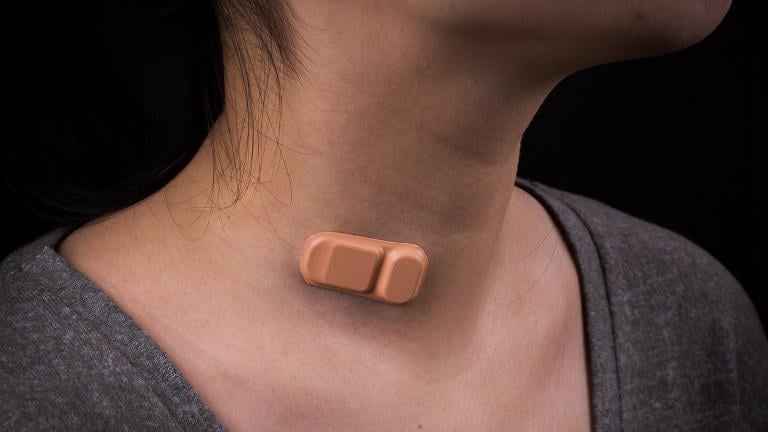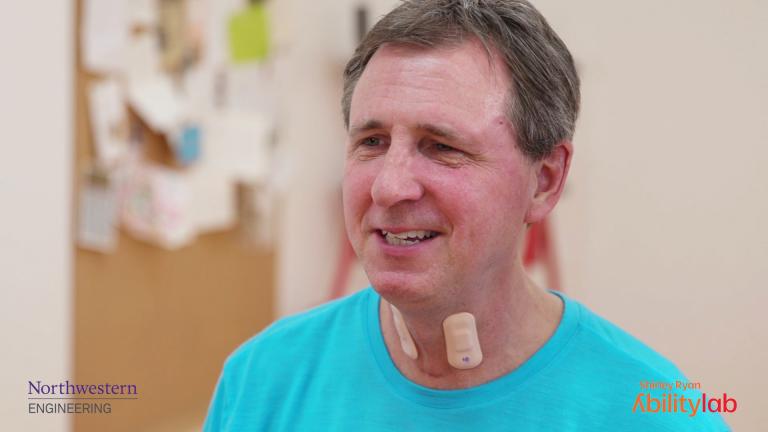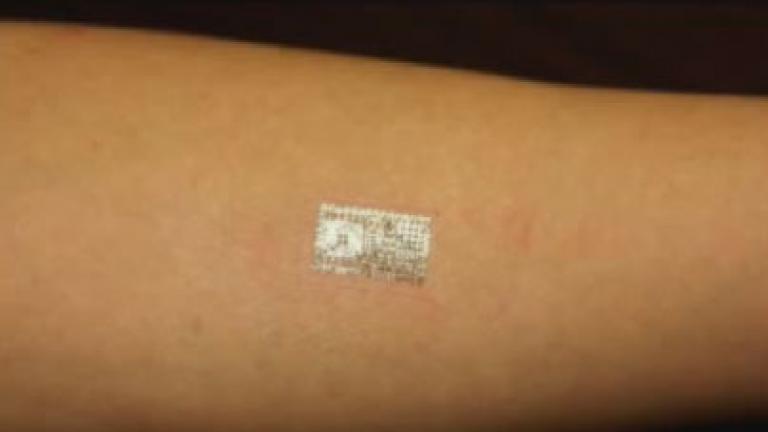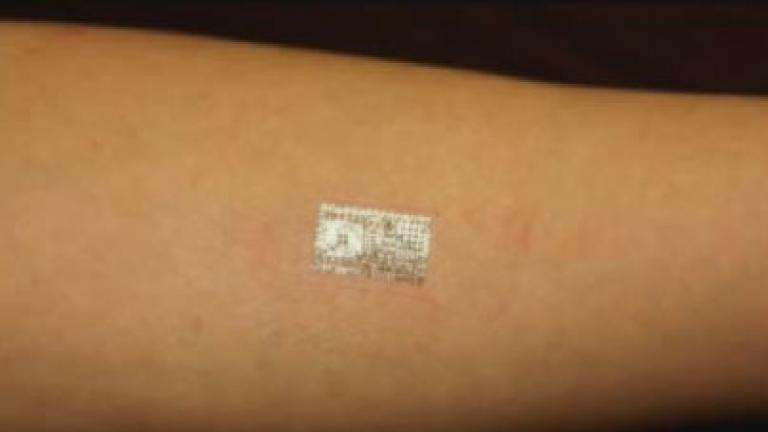A Chicago native, John Rogers is a longtime friend of former President Barack Obama.
john rogers
For pregnant women, fetal monitoring devices are a cumbersome array of wires and tape that require constant adjustment and, quite literally, tether the patient to a hospital bed. A team of researchers at Northwestern University is working to change that.
Worn 24/7, the soft, flexible sensor is being used to monitor cough, shortness of breath and fever in a small number of patients and front-line health care workers. Researchers hope the device can provide more insight about the coronavirus.
The future of medical monitoring is taking shape in a laboratory just north of Chicago. We learn about a new generation of flexible electronics.
Soft, flexible sensors developed by Northwestern University researchers measure an infant’s vital signs and allow physical bonding between baby and parent.
More than 1 million Americans live with brain shunts and the constant threat of their failure, which can be fatal. A new, noninvasive skin sensor can detect whether a shunt is working in minutes.
While inpatient settings help stroke victims recover, their progress tends to decline when they return home. Researchers are hoping that a new breed of wearable electronics could curb that drop-off in recovery.
Science catches up with science fiction as we revisit a conversation with Professor John Rogers, the inventor of epidermal electronics -- tiny, bendy computer chips that can be placed on or in the human body to monitor critical health data. Watch web extra videos.
Science catches up with science fiction as we talk to Professor John Rogers, the inventor of epidermal electronics -- tiny, bendy computer chips that can be placed on or in the human body to monitor critical health data. Watch web extra videos.

